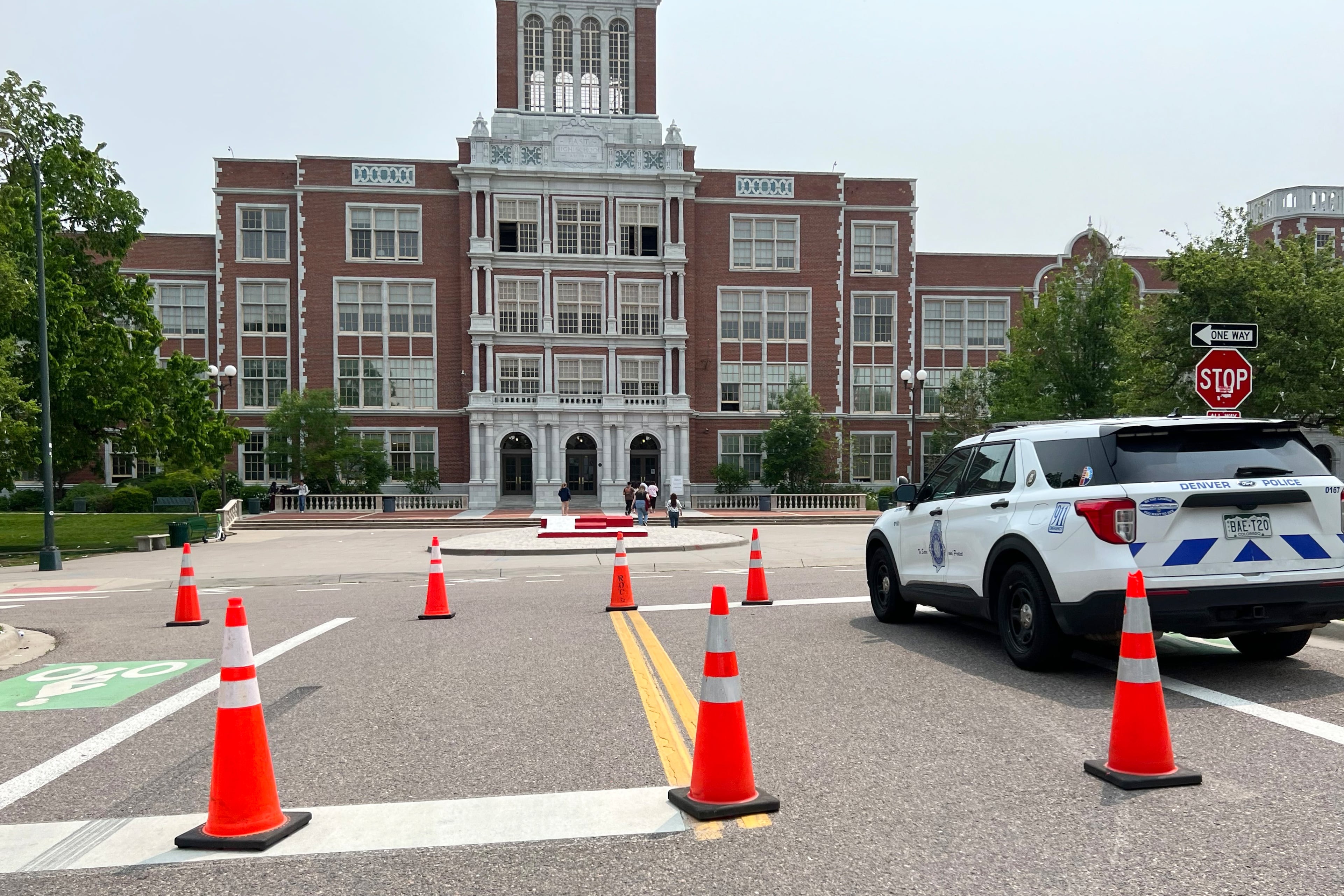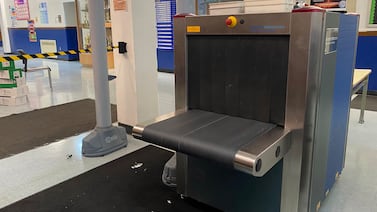Sign up for Chalkbeat Colorado’s free daily newsletter to keep up with education news in Denver and around the state.
Nearly six months after police were stationed on some Denver high school campuses, the school district and the city police department signed an agreement that outlines what the officers should and should not do, according to a copy of the agreement.
For instance, the agreement says the officers should “differentiate between disciplinary issues and crime problems and respond appropriately,” and should not store guns inside schools.
The agreement — which is sometimes referred to as a memorandum of understanding, or MOU — was quietly signed last month. The lack of an agreement has been a sore spot for some parent groups and a political talking point for school board candidates.
The agreement is “a significant milestone in our ongoing efforts to create a safe and supportive educational environment for all students and staff,” Denver Public Schools said in a statement.
“It is important to note that this arrangement underscores the importance of minimizing law enforcement involvement in routine school disciplinary matters and places a strong emphasis on considering alternative approaches before requesting (police) intervention.”
Police officers known as school resource officers, or SROs, temporarily returned to 13 DPS high schools in April after a March shooting inside East High School. The school board had removed SROs in 2020 over concerns about the overpolicing of Black students.
In June, a majority of board members voted to keep SROs in schools going forward. The Denver Police Department is footing the bill for 14 officers this school year. Before SROs were removed in 2020, the police department and school district split the cost.
Here’s a closer look inside the agreement. It says that:
- DPS and the police department should work together to select the schools that will have an SRO. “To the extent possible, SROs should reflect the students at the school and come from the school’s community,” the agreement says.
- DPS can “promptly remove” an SRO who does not follow district policies and can further request removal “for any reasonable cause DPS provides in writing” to the police department “after other attempts to correct the problem have been explored.”
- Note: At least one SRO has already been removed this school year. But it was the Denver Police Department’s decision, not the decision of DPS, according to spokespeople for both agencies. The police department replaced an SRO at East High “due to a concern about involvement in a school discipline matter, which is outside the scope of work for our SROs,” department spokesperson Jay Casillas wrote in an email.
- The police department will ensure that SROs are certified by the National Association of School Resource Officers, or NASRO. The topics covered in that training may include adolescent development, cultural competence, restorative justice, accommodations for students with disabilities, and the creation of safe spaces for LGBTQ students.
- DPS educators will “make every effort possible to handle routine discipline … without involving the SRO in an enforcement capacity.”
- DPS educators will notify SROs if a student needs accommodations because of a disability, and will notify parents as soon as possible if a student is ticketed or arrested.
- DPS will monitor tickets and arrests and “take corrective action and notify the (school) Board if the district is aware of a disproportionate number of citations and arrests across marginalized identities at the district and school levels.”
- DPS will cooperate with police investigations “without hindering or interfering with the Police Department’s or the assigned SRO’s official duties. This cooperation does not obligate the District to make students or staff available for interviews or interrogation.”
- DPS will provide the police department with limited access to Infinite Campus, a software program that stores student information. The access “will be limited to accomplish purposes related to school safety.” Police officers will not be able to use Infinite Campus for law enforcement purposes, “including but not limited to investigation of crimes unrelated to campus safety.” DPS will audit the police department’s use.
- The agreement is effective for one year, with an expiration date of July 31.
Read the full agreement below:
Melanie Asmar is a senior reporter for Chalkbeat Colorado, covering Denver Public Schools. Contact Melanie at masmar@chalkbeat.org.






